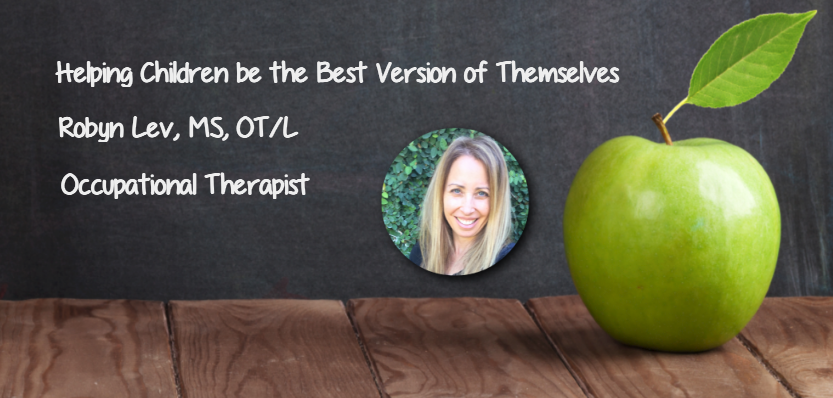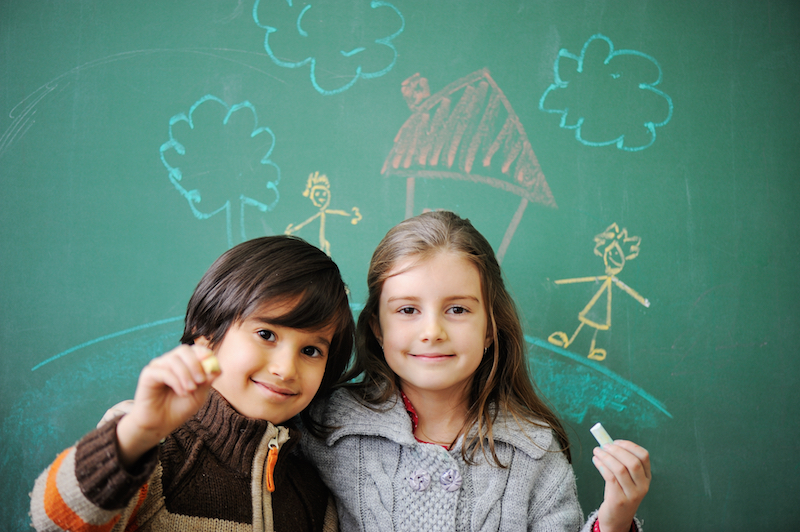
How do I know if my child needs Occupational Therapy?
Does your child demonstrate one or more of these behaviors?
- SENSORY PROCESSING DISORDERS: may respond differently by seeking out or avoiding sensory experiences, like: visual stimuli, auditory stimuli, engaging in movement experiences and tactile stimuli, which interferes with the ability to perform everyday activities in school and at home.
- FINE MOTOR DELAYS: difficulty with handwriting and cutting skills, buttoning a shirt or performing fasteners on pants, using an appropriate grasp to hold a pencil.
- SELF-CARE DELAYS: difficulty with feeding skills which includes eating a variety of foods, using spoon/fork/knife appropriately, and drinking from a cup or using a straw, difficulty with dressing and grooming activities.
- BILATERAL COORDINATION DELAYS: difficulty using both sides of the body together to perform a task such as tying shoes, throwing/catching a ball, pumping a swing, riding a bike, and jumping jacks.
- VISUAL PERCEPTUAL DISORDERS: difficulty organizing visual information from the environment in order to perform a task (putting a puzzle together, copying notes from the board/paper).
- DECREASED STRENGTH & COORDINATION: difficulty performing age appropriate weight bearing movements (wheelbarrow walk) and holding body positions against gravity (superman), poor posture, leans while sitting or standing, seems clumsy, awkward, and uncoordinated
- POOR ORGANIZATION & BEHAVIOR: difficulty paying attention, following verbal directions, and staying on task, impulsive, distractible, easily frustrated, doesn’t like changes in routine, moves slowly and takes a long time to complete tasks.

What can occupational therapy do for children?
Occupational therapy helps children to develop the underlying skills necessary for learning and performing specific tasks, but it also addresses social and behavioral skills. It can help with the child’s self-concept and confidence. Pediatric occupational therapy helps children develop the basic sensory awareness and motor skills needed for motor development, learning and healthy behavior. These include the following:
- body awareness (proprioceptive sense)
- coordination of movements between the two sides of the body (“crossing the midline”)
- fine motor control and organization
- motor planning
- motor movements and coordination
- gross motor coordination
- ocular motor skills
- visual perceptual skills
- self-regulation
- sensory modulation (reaction to stimulus)
Occupational therapists not only work directly with the child, but also with the family, parents, caregivers and teachers in order to educate and reinforce specific skills and behaviors which will be used to improve and facilitate the child’s performance and functioning.

When would a family come to see an OT?
Any time a child is not functioning at an age appropriate level in any aspects of their life, they might see an OT for an evaluation. Children will benefit from Occupational Therapy if they have:
- Poor coordination
- Decreased balance (“clumsiness”)
- Delayed motor skill development
- Low muscle tone or strength
- Difficulty with handwriting
- Been diagnosed with a learning disability
- Difficulty completing tasks that seem easily attained by peers
- Behavioral challenges or social skill issues
- Decreased attention or ability to participate in age appropriate activities
- Decreased self-esteem and self-concept
- Decreased visual skills including visual perceptual skills and ocular motor skills
- Difficulties with feeding, is a picky eater or a messy eater

About Robyn Lev
Robyn Lev received her Master of Science degree in Occupational Therapy from the College of Physicians & Surgeons at Columbia University. She is a licensed occupational therapist who has been working with infants and children for over 20 years. She is dedicated to helping children with sensory processing disorders, developmental delays and other neurological deficits reach their full potential.
Robyn creates sensory experiences for your child at home and in school so your child can reset themselves.Robyn participates in the Empowerment Scholarship Account Program (ESA) and Medicaid of Arizona.

